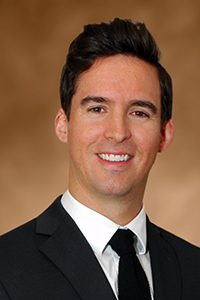Lawmakers this session, working across party lines, passed bills aimed at holding behavioral health treatment centers accountable and expanding treatment for serious mental illnesses that are often overlooked.
Several bills passed this session focused on expanding services for people with severe mental illness (SMI).
The Arizona Health Care Cost Containment System (AHCCCS) released mortality trends for SMI beneficiaries for the first time in 2022. According to a report submitted to the Joint Legislative Budget Committee in September 2023, there were at least 1,769 deaths among people in this category in 2022. The majority of deaths were due to natural causes, but 86 were reported as suicides.
The bill was pushed by lawmakers working with a prominent new group on Capitol Hill called Arizona Mad Moms.
The group, made up of parents and friends of people with schizophrenia and other mental illnesses, is trying to shed light on how difficult it can be to access proper mental health treatment in the state, especially for lesser known mental illnesses such as schizophrenia.

Sen. Katherine Miranda (D-Phoenix) led “Mental Health Mondays” this session, sharing stories of people with severe mental illnesses who have been let down by their state’s mental health system.
During Monday’s floor session, she highlighted the struggles of Mad Moms as they navigate the state’s mental health treatment system with loved ones who have SMI.
Miranda said the articles highlight “the flaws in our system” and that Mad Moms members often recount their own experiences when testifying in support of the bill at committee hearings.
“Listen to each of their stories, and you will see the flaws in our system,” Miranda said, launching the effort at the start of the legislative session. “You will hear the struggles they’ve experienced. You will hear what parts of the system have let them down. We need to pay attention and come together to fix those parts of our broken system.”
One bill passed this session provides that AHCCCS, the state’s Medicaid provider, will assume responsibility for overseeing state agencies that provide behavioral health treatment. The law also expands expectations and procedures for mental health exams and court-ordered evaluations to be more inclusive, particularly for underrepresented mental illnesses.
Now that the bill has passed, AHCCCS is also required to report treatment-based statistical findings.

Josh Moselle, president of the Association of the Chronically Mentally Ill, said requiring actual outcomes data from treatment centers would help bridge the information gap and bring awareness to systemic failures.
Other bills that passed expanded requirements for court-ordered behavioral health evaluations, specifically requiring the evaluation to include more information about the prospective patient to allow for more specialized treatment, and also designated individuals who can provide informed consent on behalf of patients who may undergo voluntary evaluations, partly to fill gaps in care.
Several bills have been passed to reform court-ordered treatment, but no bills that would allow individuals’ loved ones to petition for involuntary treatment passed this session.
Republican Sen. Justin Wadsack of Tucson described Arizona’s mental health treatment system as a “series of failures” during a committee hearing on Feb. 28. The Tucson Republican has introduced a bill that would be Arizona’s version of Casey’s Act.
The Matthew Casey-Wethington Act of Substance Abuse Intervention, commonly known as the Casey Act, is named after a man who died of a heroin overdose in 2002. The law was first enacted in Kentucky with the goal of providing a means of intervention for people whose disorders prevent them from realizing they need treatment, commonly known as involuntary treatment.
The bill passed the Senate on a bipartisan basis, but several lawmakers said work was still needed to ensure the bill was consistent with state drug abuse programs already in place.
The proposal was introduced in the House of Commons in March but never made it beyond second reading.
Another bill, likely to be introduced again in the next legislative session, would allocate $10 million from the general fund and $18 million from state Medicaid funds for continued safe behavioral health provider fee increases.

